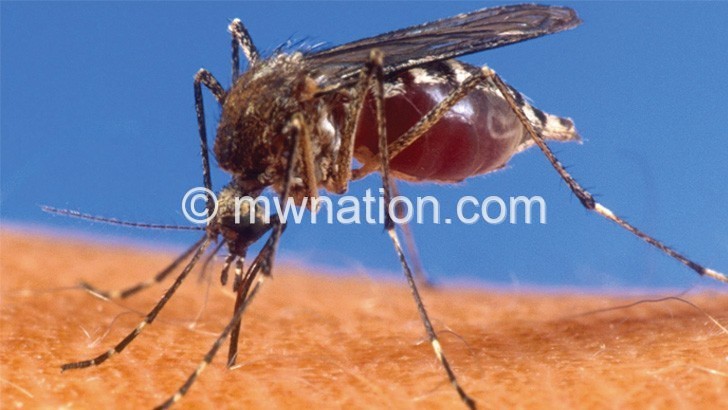Delegates to a research dissemination workshop on integrated rice farming and malaria have called for enhanced measures to combat malaria after a study found there was high incidence of malaria in settlements around irrigation schemes.
The study followed similar research conducted in Tanzania, Sudan, Kenya, Ethiopia and locally in Dedza District, where the researchers wanted to verify that the findings and/observations from the other areas could be replicated in other districts.
Anopheles mosquito transmits malaria
The Mwapata Institute partnered with the Kamuzu University of Health Sciences (Kuhes) and the Lilongwe University of Agriculture and Natural Resources (Luanar) to conduct the study on the incidence of malaria at irrigation schemes to verify if malaria is more prevalent in areas close to rice irrigation schemes.
Presenting the study findings in Lilongwe on Thursday, Kuhes senior lecturer in public health Charles Mangani said the study, conducted in Karonga District, confirmed that people living close to irrigation schemes contracted malaria more than people living further inland.
In an interview on the sidelines of the conference, he said: “The study proved that people in areas close to irrigation schemes are more prone to malaria.
“Therefore, we can conclude that there is a link between proximity to irrigation schemes, the availability of nets and the prevalence of malaria.”
Mwapata Institute executive director William Chadza, in an interview, commended the researchers for their useful insights, saying studies of this nature will help inform policy relating to government initiatives to promote food security.
He said: “There are institutional and organisational factors that need to be considered at the local level. For instance, we can recommend that water users associations build effective canals and drain them within seven days to break the life-cycle of mosquitoes. This would reduce the number of mosquitoes and [by extension], prevalence of malaria.”
On his part, Ministry of Agriculture Principal Secretary for irrigation Geoffrey Mamba said the policy advice offered by the local think-tank will help the government, through the ministries of Agriculture and Health, to develop policy interventions to address the country’s food security without compromising on the health of individuals in the intervention areas.
The post Malaria cases high inirrigation schemes—study appeared first on The Nation Online.
 Moni Malawi
Moni Malawi 

